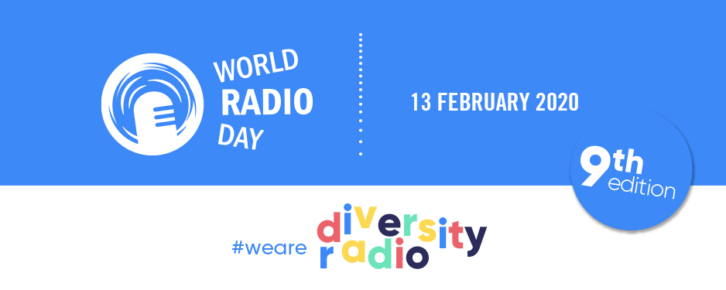
World Radio Day: Promoting diversity through radio in Southern Africa
Lusaka, 12 February 2020: To commemorate World Radio Day 2020, Panos Institute Southern Africa calls on radio stations in the region to provide platforms for a diversity of voices and viewpoints, covering diverse development issues and actors, and targeting diverse audiences.
Since its proclamation in 2011, and adoption as an International Day by the United Nations General Assembly the following year, World Radio Day is commemorated annually on 13th February.
This year, the commemorations are held under the theme “Radio and Diversity”. Panos views this theme as a call on public, private and community radio stations to uphold diversity in their newsrooms and on the airwaves. The theme encourages radio stations to promote diversity in their content and programme types, and to cater for diverse groups.
Panos works with and through radio stations to mobilise citizens, raise their awareness, amplify their voices and enhance their engagement with decision makers and other stakeholders on diverse development issues. We are of the view that increased diversity will enable radio stations to effectively play this role.
Panos is aware of the numerous challenges that hinder radio stations from promoting diversity. These include lack of resources, limited capacity and interference from external stakeholders, especially political actors. As a result, radio stations are compelled to produce and air content that favours those who appointed key personnel like board members and senior managers.
To promote diversity, radio content must be reflective of both the majority and minority groups, cater for all cultures and other interests within the coverage area. To achieve this, Panos recommends the following:
- Political parties must limit their involvement in the affairs of radio stations, and allow radio stations to freely and fairly carry out their mandate in a manner that promotes diversity and upholds the various viewpoints within their audiences.
- Decision makers must develop/amend and implement laws and policies that uphold diversity in radio. Such laws and policies must promote diversity of voices and opinions in radio broadcasts, and also support diversity in media ownership, allowing for the coexistence of different types of radio stations, be they community, commercial or public broadcasters.
- State owned or controlled radio stations must function as public service broadcasters, embracing diverse opinions and providing content that is relevant to different stakeholders in society, not behaving like mouthpieces of governments and ruling parties. For this to be realised, we encourage governments to adopt and implement policies that enhance public service broadcasting. Panos is aware that some commitments have been made in the past, but there is a lack of political will to realise this.
- Radio stations should embrace new technologies, and bring diversity to the channels they use to gather, store and disseminate content. The transmission of radio content should not be limited to the airwaves frequencies, but should also be diversified to include streaming through online platforms. We are aware that this may be a challenge especially for under resourced community radio stations.
- State and non-state actors must support radio stations, especially community broadcasters, to broadcast content that upholds diversity. We are aware that in some cases, the lack of diversity is as a result of limited access to alternative sources of information.
- Radio stations must promote diversity in their staffing, ensuring fair and equitable representation of people from majority and minority groups that make up the target audience for a particular radio station. This representation must take into account factors such as gender, language proficiency, age and social background, among other factors.
Panos believes that these steps will enable radio stations to widen their content in terms of angles, languages, music, invited guests and sources in a manner that reflects and upholds the diversity within their target audience. Increased diversity will enable radio stations to play their watchdog role and contribute to increased transparency and accountability.
Issued by:
Vusumuzi Sifile
Executive Director, Panos Institute Southern Africa (PSAf)
Email: general@panos.org.zm, Tel: +260978778148/9